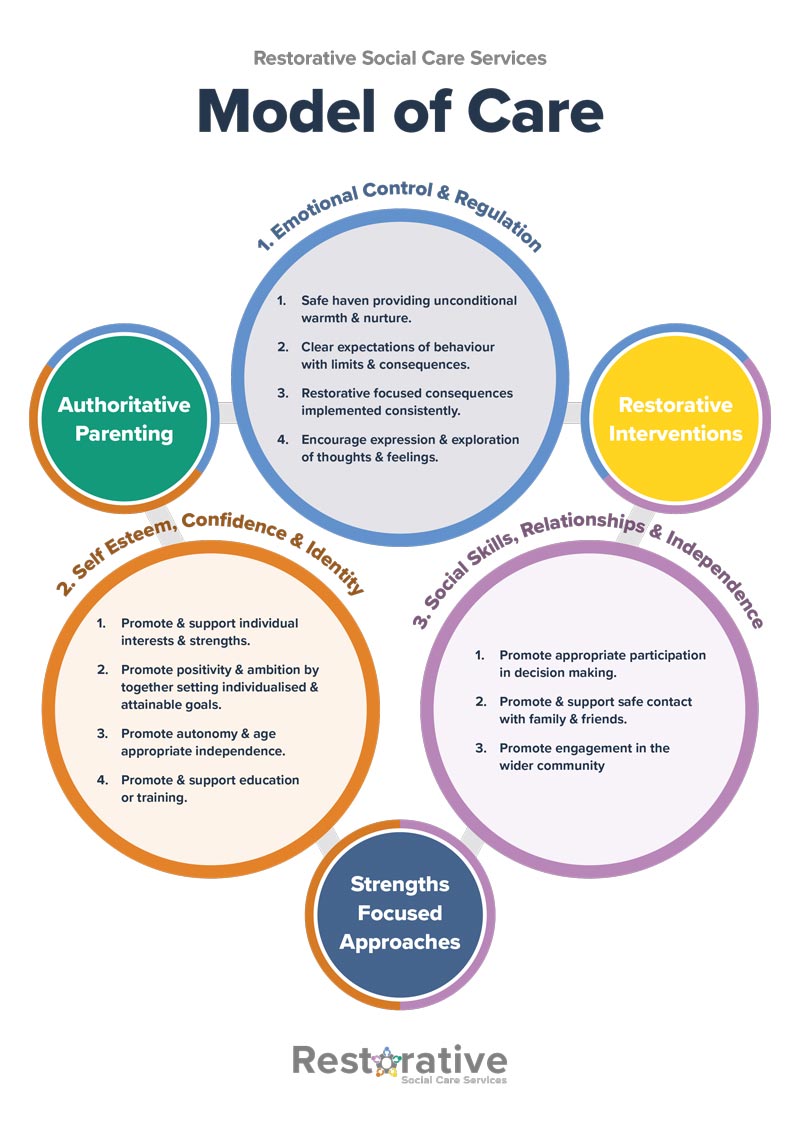Restorative’s model of care – care that looks and feels different
We always say at Restorative “children and young people’s care looks and feels different”. Why? Because our model of care is different.
Purpose-built care
We’ve purposely built our model of care to achieve the maximum for young people. Through experience, we’ve seen what works and what doesn’t, taking each successful element and putting it together so that we have the best possible practice.
Principles underpinning our model of care
- We want to support young people to achieve the fulfilling life and future they need and deserve, so we only provide personalised care unique to each individual, which they’re involved in at every stage.
- We believe in permanency of care, which means long-term care through the stages of a young person’s life, via our different services, with familiar-face workers they know and trust.
- Intense support and high ratio of workers is vital to our model of care; it’s how we build a young person’s ability and confidence to progress with hope, to the opportunities they want in life.
- Celebrating everyday achievements really matters; from these come increased wellbeing and long-term success.
Our Restorative model of care
The three aspects of our model of care all work together, (please see our model below) and are:
- Authoritative parenting
- Restorative intervention
- Strengths-focused approach

We follow an authoritative, high-support parenting model because this is found to be most effective with children and young people who have experienced trauma. It’s also a well-evidenced model for restoring trust, self-worth and wellbeing. Children and young people are encouraged and supported to learn, go to work, on outings and holidays, and are encouraged to develop and pursue special interests, such as sport and music, just as any other young person would be by their parents or carers.
Where a crisis occurs, or something goes wrong, we act on it, providing immediate restorative intervention, for reflection and open, positive communication to restore children and young people back to a position of stability, with added learning and insight to move forward and progress.
Our model of care is strengths-focused, so we promote, appropriate to age and ability, interests and abilities, positivity and ambition, decision-making, engagement and positivity.
A model of care for success and achievement
We want all children and young people to be able to achieve their potential in life. Our model pf care is specifically formulated to support this and works to help young people develop the tools they need to progress, with our specialist team’s expert support and encouragement.

